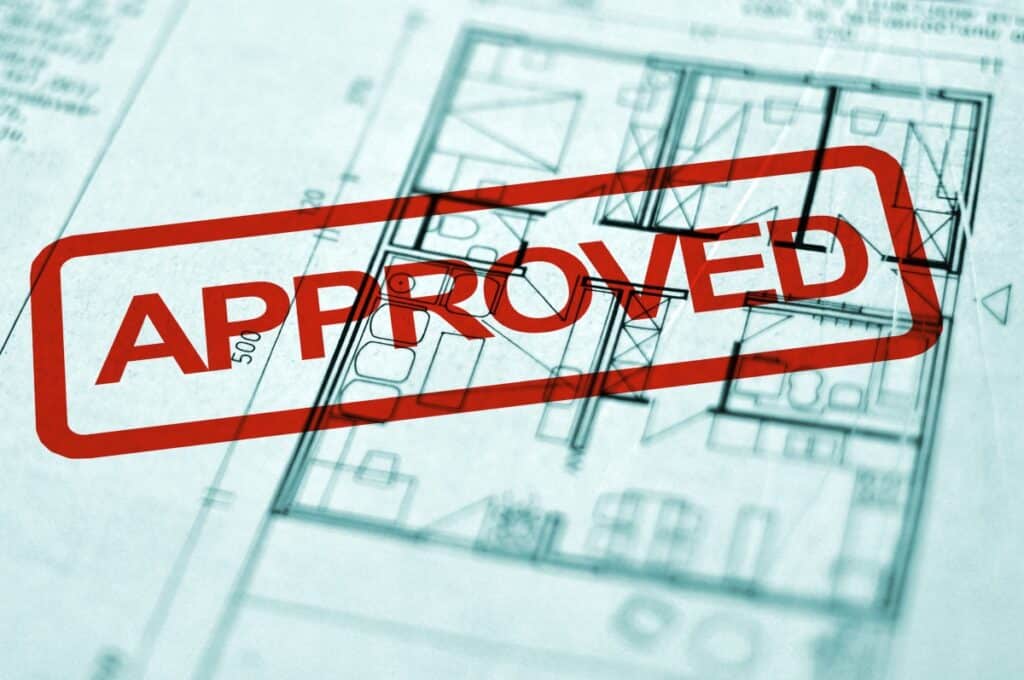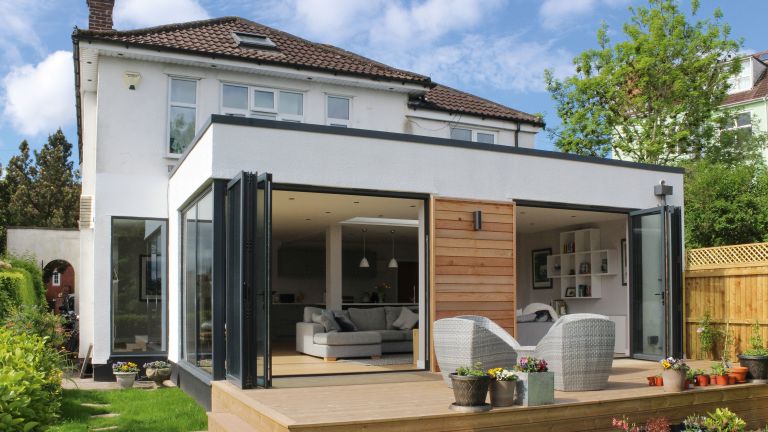Getting a house extension or home renovation can be quite an exciting, although disruptive time for any family. However, when planning to improve or extend your house, there are many things to consider and question. Based on the property you live in or your development project, you may have to apply for planning permission or your extension may fall under permitted development. As a homeowner, it is crucial to carry out in-depth research and consult your local property professionals before embarking on any home extension project. This will ensure that everything you do falls within the existing laws.
What is Planning Permission?

Planning permission simply means gaining approval for a projected home renovation from your local council. The local council will consider several factors before they respond to your home extension proposal. Some of the factors they take into account include the traffic, disability access, parking, conservation of natural areas, and how your extension can disrupt your neighbors. Your neighbors will be consulted by the local council and if they have any objections then your proposal will be put on a committee vote.
Is Planning Permission Necessary for house extensions?
The main basis for permitted development rights is to allow homeowners to extend their houses outwards without the need for full planning application. However, property owners are reminded to consider the impact that their extension plans will have on their neighbors. These rules do not apply to maisonettes, flats, and other buildings.
Some types of home alterations are allowed under permitted development, for instance, loft conversions where the additional roof space that is built is less than 40 cubic meters for terrace houses and under 50 cubic meters for semi-detached or detached houses. Those who are living in a conservation area may still need planning permission or get listed buildings consent before they start their extension. It is best to always check out the rules with the local planning department in your locality or the Government’s planning portal.
The Difference Between Permitted Development & Extensions That Requires Planning Permission
Permitted Development simply means that you can undertake development or reconstruction projects without the need to seek planning permission. This applies if your proposal does not fall under automatic permission or routine maintenance by law. Remember that even though most out-buildings and domestic extensions to houses may not need a planning Consent or Planning Application, they must adhere to a number of set rules and regulations. Additionally, if the property is listed, period, or heritage building or is situated in a conservation areas the development rights tend to be more restricted. Some of the projects that can be done under permitted development include:
- Loft conversions
- Converting attached buildings like garages
- Single storey extensions
- Swimming pools
- Conservatories
- Porches
- Walls, fences, and gate
- Converting or building a basement
What Type of Projects Require Planning Permission?
Generally, planning permission is needed if you want to build a new home or make major changes to your property like an extension. Additionally, construction works that need large excavations will require planning permission. You will also need planning permission for changing the use of an existing building, for instance, changing a private home into a block of flats.
There are exceptions where minor additions and changes can be made without seeking planning permissions and this is known as permitted development, for example, conservatories, loft conversions, and internal remodeling. However, every Local Authority varies with regards to the changes that can be made without the need for planning permission. This is why you need to contact your Local Authority and discuss your home extension proposal before you make any applications. You may also apply for a Lawful Development Certificate for conviction that the home extension changes you are making do not need full planning permission.

The Consequences of Not Applying for Planning Permission
If you do not apply for planning permission when it is necessary, you have face punishment in form of demolition during or after completing your home extension project. If the work is done on a listed building, the punishment may be more severe and prosecution is a possibility. Homeowners still have an opportunity to apply for retrospective planning permission during the home extension process. However, there is still risk of this proposal being turned down. This is why planning permission should be made at the very beginning before any construction work commences.
Building a home extension without seeking the necessary permission is a risky venture, especially if the project does not fall under permitted development. If building regulations are not adhered to, you may not be issues with a completion certificate and you will also have challenges selling the property in the future. In addition, as a property owner, you are also responsible for any remedial action taken against you.
By breaking the planning regulations, enforcement action may be taken or demolitions will be carried out by the relevant authorities. Furthermore, you may incur additional costs and end up wasting your time and money.
What Should You Do If Your Proposal Is Not Accepted?
Planning permissions are mainly accepted in Dublin and they have an average success rate of 80%. However, if you are denied, then you need to check out the reasons for the denial and address them or you can also make an appeal. Ensure that you make the necessary amendments on your application until it is accepted by the local council.
If you are planning a home extension or making major changes to your home, want to change the use of your building or your project exceed the restrictions of Permitted Development, you should get a planning permission. This is achieved by completing a proposal and then submitting your planning application to the local planning authority. Be sure to seek the help of experienced building professionals because obtaining planning permission can be quite a lengthy and complicated process. With an expert, you can navigate through with ease and eliminate worry and time consuming requirements and submit a convincing case that is likely to get planning consent granted.
